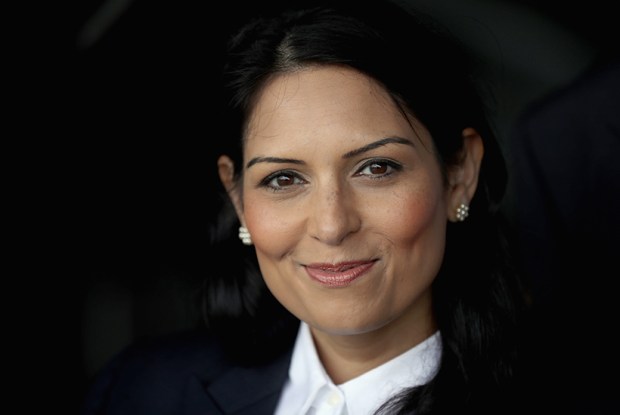Let me take this opportunity to join with our Prime Minister and Foreign Secretary in commending President Trump’s swift and decisive military action against the Syrian government as being ‘appropriate’ — one of my favourite words and one which I like to use every day, regardless of whether it is appropriate to do so.
The important thing was not of course the destruction of a few Syrian planes and, collaterally, a few Syrian children. The crucial point is that this moderate and judicious use of expensive missiles ‘sends out a message’ to President Assad. And the message is very simple. We will no longer tolerate Syrian children being killed by hugely unpleasant chemical weapons such as sarin or chlorine gas. We may think of the Syrians as pitiful specimens who do not amount to much, but in fact they are actually human beings. And as human beings, they have the right to be killed by nice clean high–ordnance, weaponry such as those fabulous Tomahawk cruise missiles that Mr Trump dispatched and which did, indeed, kill a few lucky children living near the airbase. Assad must learn that it is barbaric to kill children with nerve gas, but civilised and even kindly to kill them with high explosives.
Another message it sends out is that we shall in future act as referees, or perhaps line judges, in this interesting conflict — in order to spin it out for as long as is humanly possible, and thus maximise the number of people killed. If too many people are killed by one side in a very short space of time we will intervene. We want many, many more people to be killed over a much longer period of time — and this will be the effect of that raid on Assad’s nasty aeroplanes. Even if the Tomahawks did somehow miss the runway, it has still slowed a little the Syrian government’s attempts to achieve victory. The war will drag on for longer, perhaps much longer. And while it does so, we will sit on those unfeasibly high stools overlooking the net and decide who has made a foot fault. And when we notice the foot fault we shall penalise it immediately. We want this war to be played out in a pristine and gentlemanly manner. May the best man win.
Which is the other message we are sending out. We are strictly impartial in this exciting contest. For sure, we have some sympathies with the secular, liberal Syrian opposition — but that is a total of seven people, despite what William Hague might think. The rest of the combatants — the ragtaggle alliance of jihadi maniacs, al Qaeda, Isis and those Nusra savages versus the unpleasantly totalitarian Assad regime — well, we’re unable to make a call on that one. We’re straight down the middle. We don’t much like any of them. We have selflessly disregarded our own geopolitical interests.
Assad was a possible ally in the war against Islamic terrorism — as was that lunatic Gaddafi and the bloke who used to run Egypt who looked like a crestfallen kebab-seller — but we put these minor and selfish considerations to one side. We urged on the participants of the Arab Spring because we fully expected the insurgents to install, in place of those dictators, liberal and democratic administrations like the kind of thing Tim Farron or Chris Patten might institute in our own country, were they ever allowed near the levers of power. OK, it hasn’t quite worked out like that. Hard to imagine why not, but there we are. But at least we tried, just as we did when we invaded Iraq with good, decent, clean, depleted uranium bombs.
There are more messages those Tomahawks sent out. To the Russians, for example: we would rather have you as an enemy than a friend. A message reinforced by Boris Johnson’s principled decision to cancel his trip to Moscow and thus take us back in time, as far as relations between our two countries are concerned, to about 1961. We are somehow far more comfortable hating the Russians than we are in facing the maniacal wrath of an entire religion. Even while we pretend to ourselves that it is not an entire religion but just a few extremists who have got Mohammed all wrong, us being Koranic experts and thus qualified to adjudicate on such matters, which we do even while the trucks plough into westerners in Westminster, Nice and Stockholm, and while the bombs detonate in Paris and London and Moscow and Brussels. We would prefer to give succour to people who want us all dead right now for reasons of ideology than appease Putin, with his mild homophobia (as opposed to their somewhat vigorous homophobia) and his worries about what Nato is doing on his back doorstep. Oh, and his undoubted ruthlessness and aggression, sure. And his cold pragmatism.
More messages. Still more messages from those Tomahawks. That the UK government will generally hold a handkerchief to its nose when the name of Donald Trump is mentioned — but then embrace him warmly when he does something truly deranged and dangerous for almost certainly domestic political reasons. A message to Congress and those investigators: you think I am in thrall to that beady-eyed, bear-wrestling Slav? Watch this! And then duck and cover.
And a message to those of us who were stupid enough to think that Trump might have a slightly more realistic policy towards the Middle East, be a little less governed by the weight of deluded liberal sensibilities and might, further, have understood that our interference in its wars, its visceral and primitive hatreds, its awful governments, its wrecked economies, its incompetence, its anti-Semitism, its endless thuggery — never tends to end well. Ah, got you. Message received. We were wrong about that then.
So many messages from just $50 million worth of Tomahawk cruise missiles. Money well spent, I think.
Got something to add? Join the discussion and comment below.
Get 10 issues for just $10
Subscribe to The Spectator Australia today for the next 10 magazine issues, plus full online access, for just $10.
You might disagree with half of it, but you’ll enjoy reading all of it. Try your first month for free, then just $2 a week for the remainder of your first year.















Comments
Don't miss out
Join the conversation with other Spectator Australia readers. Subscribe to leave a comment.
SUBSCRIBEAlready a subscriber? Log in